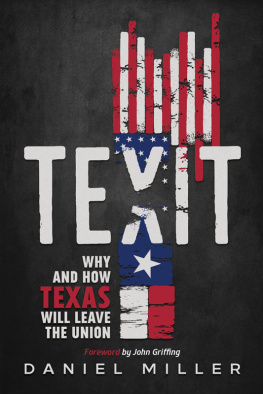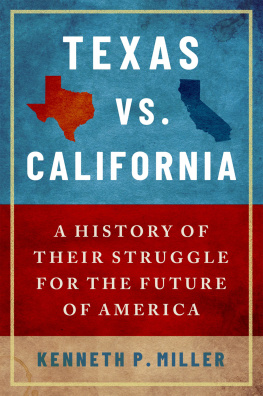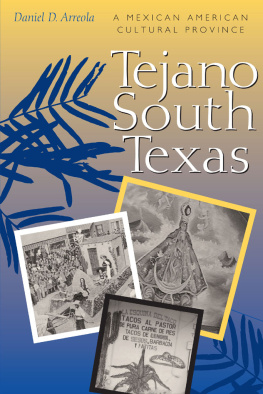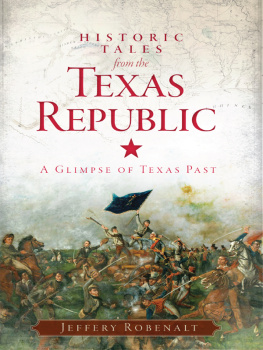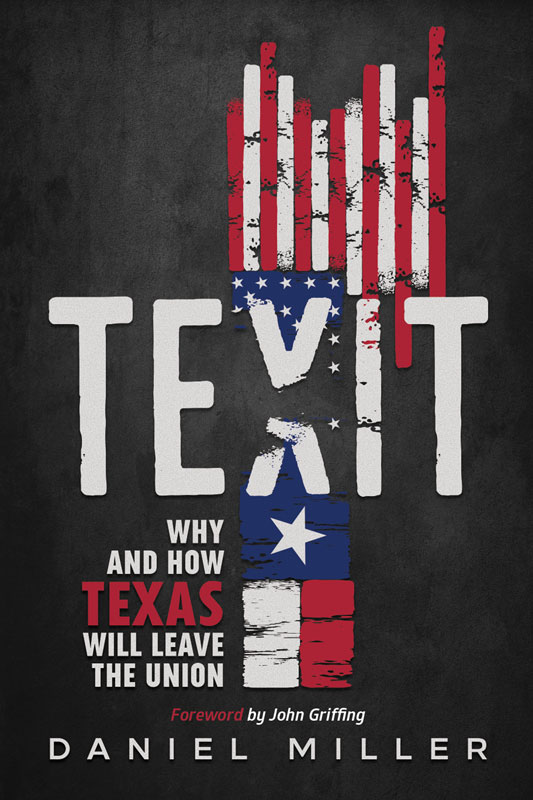Preface
On August 24, 1996, I set out on a journey that would consume much of my adult life. That was the day I was introduced to the idea that Texas could and should be an independent nation. At that time, tens of thousands of people had signed on to the cause. I was not the first. I wasnt even among the early ones. However, the idea of an independent Republic of Texas struck a chord in me that, to this day, has not been silenced.
In those days, to speak the words Texas independence was considered blasphemy of the highest order. Such was the power of that idea that some of the greatest injustices were perpetrated on people like us. Many lost their jobs and their businesses. Many lost their families because they were consumed by their passion for the ideal. Some were persecuted by the government. Others were the object of vilification by the media. We were called criminals and terrorists merely for expressing an idea that was, at the time, extremely unorthodox. Under enormous pressure, and lacking the fortitude of our ancestors, many fell away.
Some, like me, persisted. As we persisted, the idea continued to smolder in the hearts and minds of a population groaning under the weight of an ever-expanding federal government that grew increasingly out of control. Soon, faux solutions pitched as reform evaporated along with the hopes of Texans for a solution within the Union, and the smoldering ignited into a burning desire for something better, something greater.
With time, patience, discipline, and work, more Texans began to see an independent Texas as a viable path forward to preserve the freedoms they cherished and to reach for a future worthy of coming generations that will have to live it as their present. Today, many see independence as the only way to protect the fundamental principles we once called America.
It is not up to me, through this book, to vindicate those who have worked for Texas independence. Future generations will be the judge. Instead, my job is to explain Texit as I know ithopeful, strong, rooted in Texas history and culture, with its eyes set on the future.
While the amount of information on Texit and the case for it is greater than ever, the discussion has not been elevated accordingly. The pro-independence side has been reduced to shouting SECEDE! at every new federal grievance. The opposition has been reduced to the one-sentence reply of, You cant do that.
Until this point, no single work has addressed the underlying causes driving Texans to support Texit in record numbers, the global political trends shaping the Texit discussion, the imminent implosion of the federal system that will leave the United States powerless to stop Texit, the process under which Texit can occur, or what a newly independent Republic of Texas may look like.
While this book is meant to touch on these issues, it is not comprehensive. Twenty years of exhaustive research on the issue, coupled with the practical experience that comes with working to make Texit a reality, has shown that the entire issue is far too complex for one book. It is, however, a good way to get the conversation started. While this book cannot answer every question about Texit, it does answer some of the most frequent. More important, it provides appropriate context to help the reader understand that the solutions are not unique nor are the challenges insurmountable. It truly is about looking at Texit from a larger perspective and coming to grips with the fact that any perceived barrier to achieving Texas independence has already been broken by someone at some time.
I fully intend for this book to generate controversy. It is in the best interest of Texans and, frankly, all States of the United States if it does. Controversy and criticism create debate and discussion and, in turn, generate more questions. At this point in our history, everyone should be asking more questions, especially about how we are governed.
While this book focuses on Texas, discussions about self-government and self-determination are not, and should not, be limited to Texans. The issues raised should be discussed across every kitchen table and every political campaign across the United States. People everywhere have a fundamental right to ask whether they are being served by their current form of government and a basic duty to act if they are not.
This book is chock full of facts, figures, quotes, poll numbers, laws, and economic data but, to keep the subject matter accessible, it was necessary to streamline the work by omitting additional supporting evidence. This was especially true in relation to the legal and constitutional aspects of States leaving the Union and the original intent behind the construction of the United States.
For a more in-depth examination of the nature of the federal union, I recommend the book A Brief Enquiry Into The True Nature and Character of Our Federal Government by Abel Parker Upshur. I would also recommend that, if you want to take a deeper dive into the concepts and principles behind Texit, you can start by reading the reports or books specifically mentioned in this book in their entirety.
Throughout the book, you will see various capitalizations, punctuation, and grammar used that, at first glance, may seem inconsistent. In discussing the States of the United States, I use a capital S whereas, in speaking of states in their general sense, I use the lowercase. This happens in all instances except when quoting some of the founding documents of the United States where their standards of punctuation have a direct bearing on the issues raised in this book. Also, in this book, the term United States is most often treated in its plural sense. The United States are was the clear intention at the founding of the Union, while United States is was a later usage adopted to reinforce a fallacy about the construction of the Union.
Additionally, in all instances where quotes are used, they are directly attributed within the text and Ive provided enough information for readers to verify their accuracy by a simple Internet search.
Many of the concepts and issues raised in this book are neither new nor unique. This is, however, the first time all of them have been combined into a single work on the issue of Texas independence. I have not held back on slaughtering sacred cows and throwing their remains on a Texas-sized bar-b-que. Nor have I spared any politicians, especially those with whom I have had personal experience on this issue.
The critics will mercilessly attack this work because it is counter to the accepted political dogma of the day. History will judge this work, but the real judges as to its validity will be the people of Texas and all who seek the promise of self-determination. It is to them that I commit this work.
Introduction
Cowardice asks the question, Is it safe? Expediency asks the question, Is it politic? Vanity asks the question, Is it popular? But, conscience asks the question, Is it right? And there comes a time when one must take a position that is neither safe, nor politic, nor popular, but one must take it because ones conscience tells one that it is right.
Martin Luther King, Jr.
Until the last few years, Texit has not been a topic that is safe, politic, nor popular. But the belief by its most ardent supporters that it is right for Texas and Texans has been infectious. Spurred by the daily displays of federal dysfunction, Texans find their long-standing assumptions challenged by the questions that Texit poses, and compelled by the promise and hope that an independent Texas presents.
Texit is inevitable. It is no longer just a hope, wish, or dream. Rather, it is a statement of fact, a certainty in a world filled with so much uncertainty. It represents a fixed point in the future of Texas that is growing closer every day. However, it is what led us to this point, the journey getting there, and what lies beyond that has lacked explanation and clarity. To use a phrase popular with a previous generation of Texans, there are more questions than Carter has liver pills.

